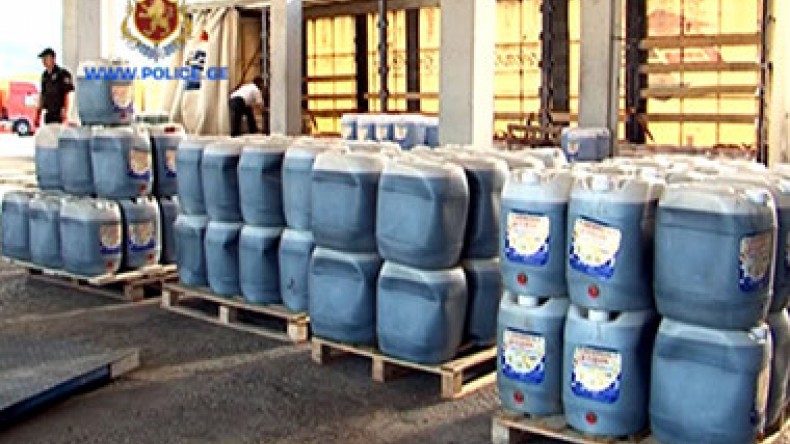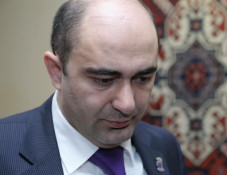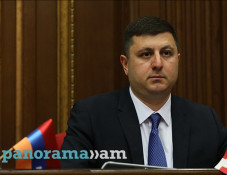
Baku’s silence after confiscation of a large quantity heroine on Georgian border raises questions
Azerbaijan’s stone-wall silence after northern Georgia triumphantly confiscated roughly $175-million worth of liquid heroin on the Georgian-Azerbaijani border has sparked questions about the reasons for their reserve, says the article by Shahin Abbasov published on the website of American organization EurasiaNet.
The author of the article reminds that on 11 July Georgian border police found a record 2.79 tons of liquid heroin inside 93 30-kilogram containers of handwash conveyed by a cargo-truck from Azerbaijan to Georgia. Georgian Interior Minister Aleksandre Chikaidze announced that the cargo had travelled from Afghanistan via Iran to Azerbaijan, and was headed to Turkey and on into Europe.
“Azerbaijan and Georgia’s status as part of a narcotics corridor from Afghanistan and Iran to Europe long has been established. Both countries cooperate with the United Nations and the US Drug Enforcement Administration (DEA) to crack down on international trafficking rings,” the author notes.
According to the US State Department, which cites Azerbaijani government data, in the first nine months of 2012, the latest year for which information is available, Azerbaijan confiscated a total of over 654 kilograms of narcotics. This makes one wonder how the heroin managed to make it past the Azerbaijani border control and into Georgia. EurasiaNet didn’t manage to get any comments on this from Azerbaijani State Border Control Service, Ministry of the Interior or the Ministry of National Security.
As reported by Azerbaijani pro-opposition newspaper Yeni Musavat, Georgian Interior Minister Chikaidze discussed details about the operation with Azerbaijan’s President Ilham Aliyev, Interior Minister Ramil Usubov and State Border Control Chief Elchin Guliyev during a May 13-16 official visit to Baku.
At the time, Azerbaijani media reported that Chikaidze had discussed “border issues.” If the Yeni Musavat report is accurate, some observers wonder why Baku does not acknowledge its success publicly, together with Georgia, some commentators wonder.
“The US State Department’s 2014 International Narcotics Control Strategy Report estimates that “up to 11 metric tons” of narcotics, much of it from neighboring Iran, travel through Azerbaijan each year. As Turkey tightens its own border controls, Azerbaijan could become “an increasingly favored transit country for drugs. News about a liquid-heroin drug bust by Azerbaijan and Georgia would serve to reinforce the message that Baku takes this threat seriously,” notes the author.
According to ex-counterintelligence officer Arastun Orujlu, director of the pro-opposition East-West Research Center, “Either Azerbaijan’s border control or customs do not do their jobs properly or . . . these [drug] syndicates have strong patrons in these bodies”.
The US embassy in Baku did not respond to requests for comment about any possible role by the US DEA in the detection of the liquid-heroin shipment.
Newsfeed
Videos






























